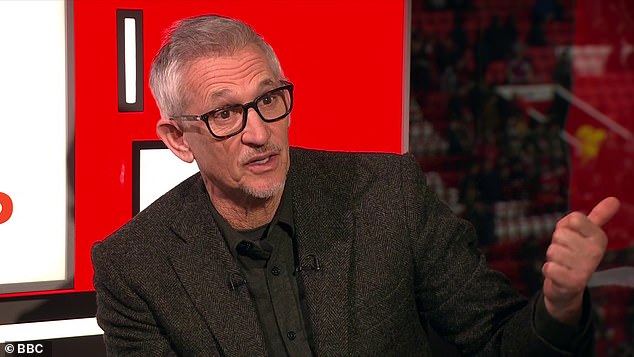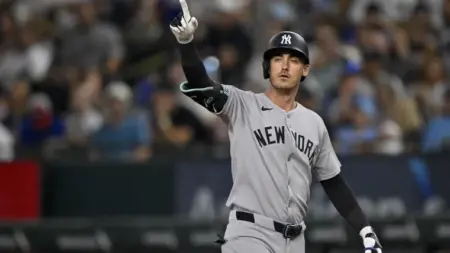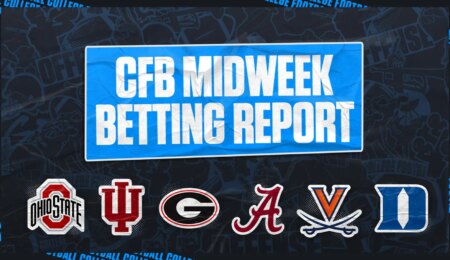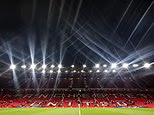A Complex Legacy: Gary Lineker Questions Sir Alex Ferguson’s Departure
Gary Lineker, a former Manchester United star and current prominent football pundit, has expressed his concerns about the state Sir Alex Ferguson left the club in, particularly in light of their recent FA Cup fifth-round defeat to Fulham. The match, which ended in a penalty shootout loss at Old Trafford, has further dimmed United’s hopes of securing a place in European competition for the upcoming season. This setback is the latest in a series of disappointing results that have characterized the Red Devils’ campaign, with the team currently occupying a precarious 14th place in the Premier League and struggling to find consistency under their Portuguese manager, Ruben Amorim.
Ferguson’s Golden Era and Its Aftermath
Sir Alex Ferguson’s tenure at Manchester United was nothing short of legendary. He guided the club to unparalleled success, including 13 Premier League titles, two UEFA Champions League victories, and numerous other domestic and international trophies. His final season in charge, 2012-2013, saw United clinch the Premier League title, a fitting end to his incredible 26-year reign. However, Lineker’s comments suggest that this success might have masked underlying issues that became apparent after Ferguson’s departure. Despite winning the league that season, it was clear that many of United’s star players were nearing the end of their careers, and the club’s once-prolific academy was no longer delivering the caliber of talent it once did.
The Struggles Since Ferguson’s Exit
The departure of Ferguson in 2013 marked the beginning of a tumultuous period for Manchester United. Since then, the club has gone through seven full-time managers, each of whom has failed to replicate the success and glory that Ferguson brought to Old Trafford. The list includes David Moyes, Louis van Gaal, Jose Mourinho, Ole Gunnar Solskjaer, Ralf Rangnick, Erik ten Hag, and now Ruben Amorim. None of these managers have managed to win a Premier League title, and the club’s presence in the latter stages of the Champions League has been notably absent. This lack of sustained success has led many to question the legacy left by Ferguson and the club’s ability to maintain its competitive edge.
Comparing United to Liverpool: A Tale of Two Legacies
In contrast to Manchester United’s struggles, Liverpool has continued to thrive under new management. The arrival of Arne Slot, following Jurgen Klopp’s successful tenure, highlights the stark difference in the quality of the managerial transition. Klopp, who stepped down last season, left behind a well-structured and highly talented squad, ensuring that his successor would have a solid foundation to build upon. Lineker’s comments during the BBC’s coverage of United’s defeat underscore this point, praising Klopp for his foresight and the robust structure he established at Anfield. The implication is clear: while Ferguson’s departure may have seemed seamless at the time, the underlying issues he left behind have proven difficult to overcome.
Ruben Amorim’s Challenges and Defenses
Ruben Amorim, appointed as Manchester United’s manager in November, has faced significant challenges in his short tenure. The recent loss to Fulham is a testament to the club’s ongoing struggles, both in domestic and European competitions. When questioned about the team’s inability to create meaningful chances, Amorim pointed to the quality of his players as a factor. He noted that key players like Bruno Fernandes and Casemiro, while still valuable, might not be providing the same level of creative spark that the team needs. Additionally, he highlighted the progress of younger players like Joshua Zirkzee, who is gradually improving his connection and work rate on the pitch. This defense suggests that Amorim is acutely aware of the team’s limitations but remains optimistic about their potential for improvement.
The Role of the Academy in United’s Decline
One of the critical factors in United’s decline, according to Lineker, is the failure of the club’s academy to produce players of the same calibre as in the past. Ferguson’s era was marked by the emergence of a generation of young talent, including the likes of Paul Scholes, Ryan Giggs, and David Beckham. These players not only formed the backbone of the team but also propelled the club to numerous titles. The current lack of such talent coming through the ranks has left the team relying heavily on expensive transfers, without the same level of organic growth and development that characterized Ferguson’s teams. This has contributed to a sense of disconnection and inconsistency in the squad.
A Path Forward: Rebuilding and Revival
Despite the current challenges, there are still glimmers of hope for Manchester United. The club’s vast resources and storied history mean that it has the potential to rebuild and once again become a dominant force in English and European football. However, this revival will require a comprehensive approach, including a focus on developing young talent, strengthening the managerial structure, and making strategic investments in key areas of the squad. Ruben Amorim’s tenure offers a fresh start, and with the right support and time, he could help the club navigate through its current difficulties. The journey may be long and arduous, but for a club with United’s legacy, the expectation of returning to its former glory remains a driving force.











